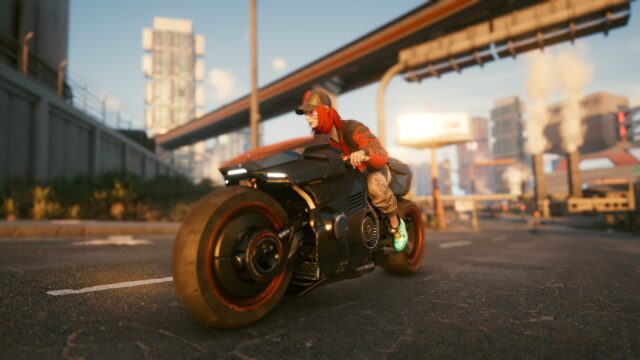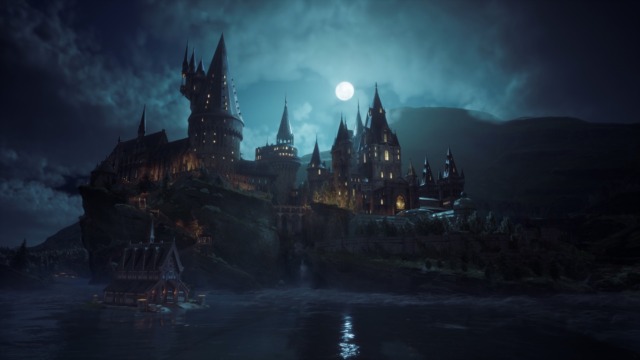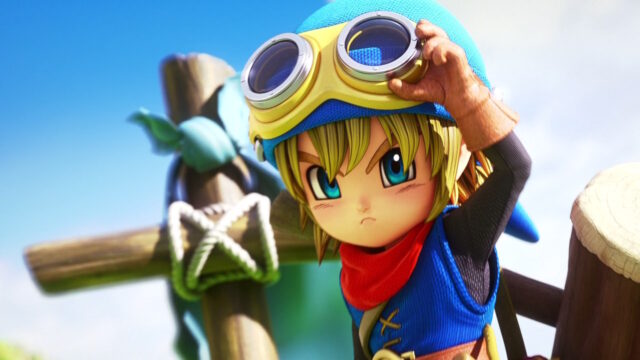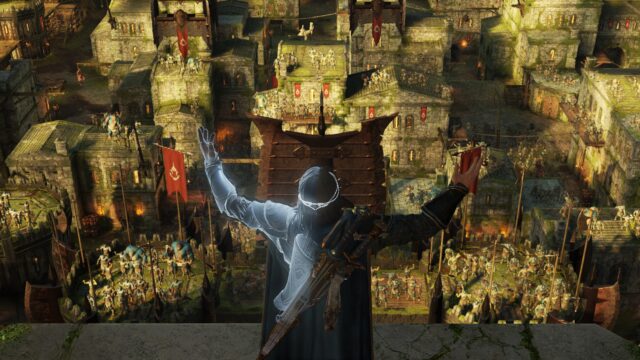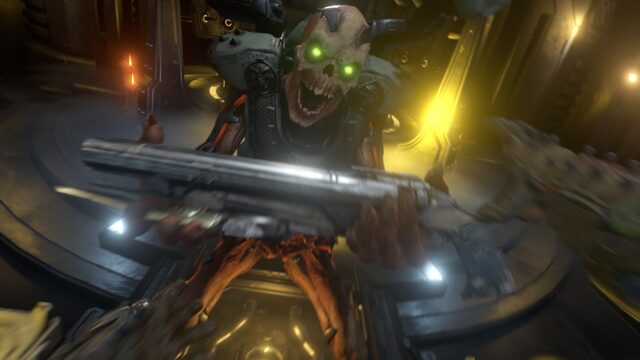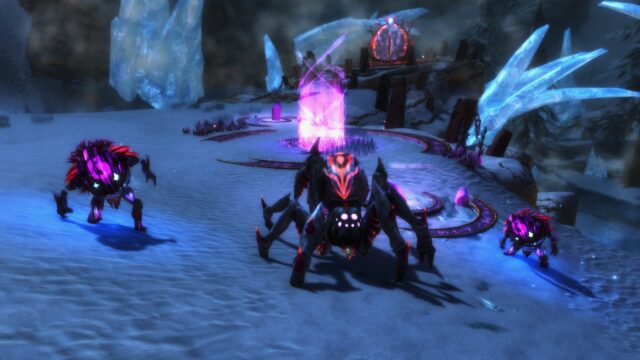Disco Elysium: The Best Game of 2019 from Estonia
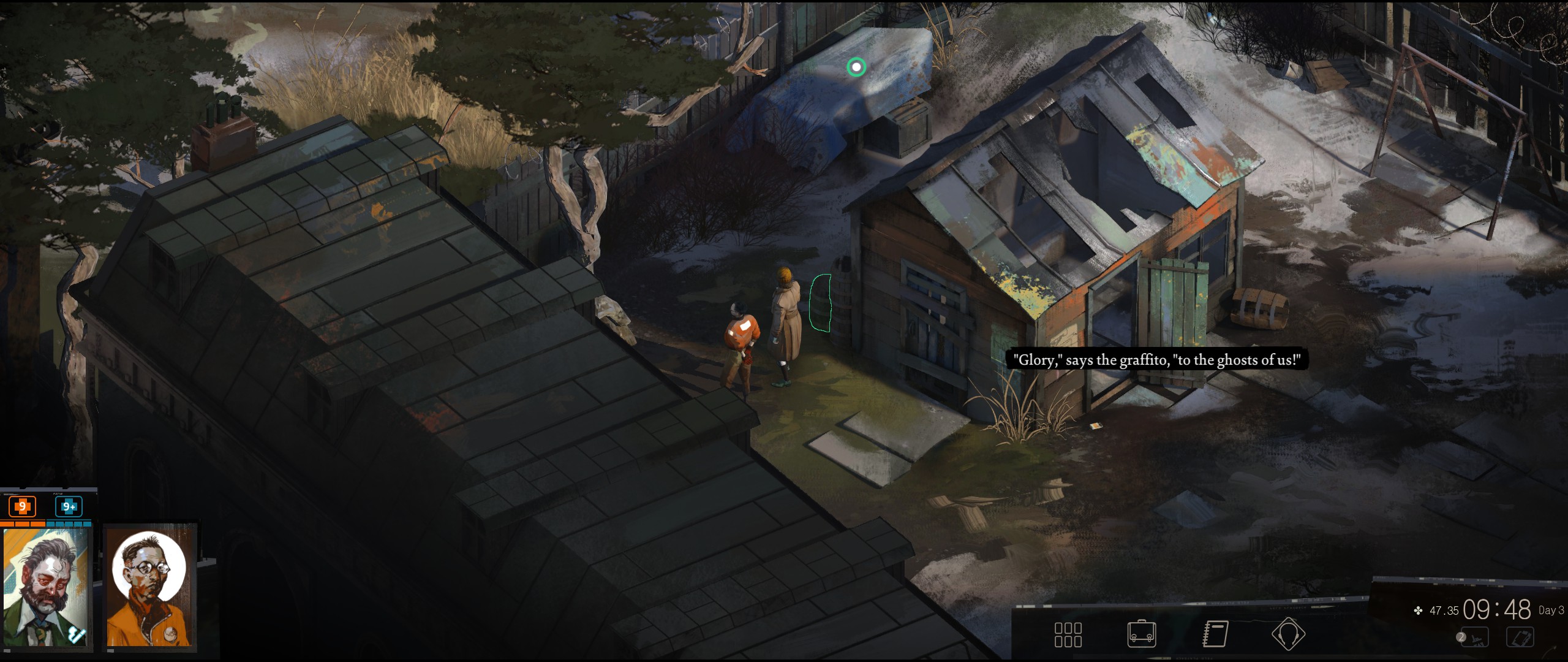
There are games that you construct in your head (“if only someone would come up with and develop…”). There are games that you wait for. And then there are those that you don’t wait for because it’s impossible to expect something like that. An RPG without combat? A couple of conflicts with the use of weapons resolved by rolling virtual dice and checking skills? A detective story where the ability to listen to the noise of the city and the voices in your head is just as important as the ability to read clues? A story of a murder that encompasses the bittersweet nostalgia of a decaying seaside city, Nietzschean attempts to look into the abyss, and political disagreements? Who could even come up with something like that?
It came, it appeared, it worked out. And here we are. Well, actually, he is here – our unnamed hero for now. Unnamed not because the player will be given the option to “insert name here,” but because in the midst of a hangover, nausea, and the slightly swaying atmosphere of a demolished hotel room, the hero slowly realizes that he doesn’t remember anything at all. Except for basic information – people walk on their feet, there is night after a day, eight plus nine is… oh, my head!
But here’s the problem: the name, profession, age, and the hero’s past are all covered not just in darkness, but in indelible ink in three layers. And when asked “where am I, and why is there such a mess around,” he struggles to answer. Amnesia caused by several days of continuous drinking is a merciless thing.
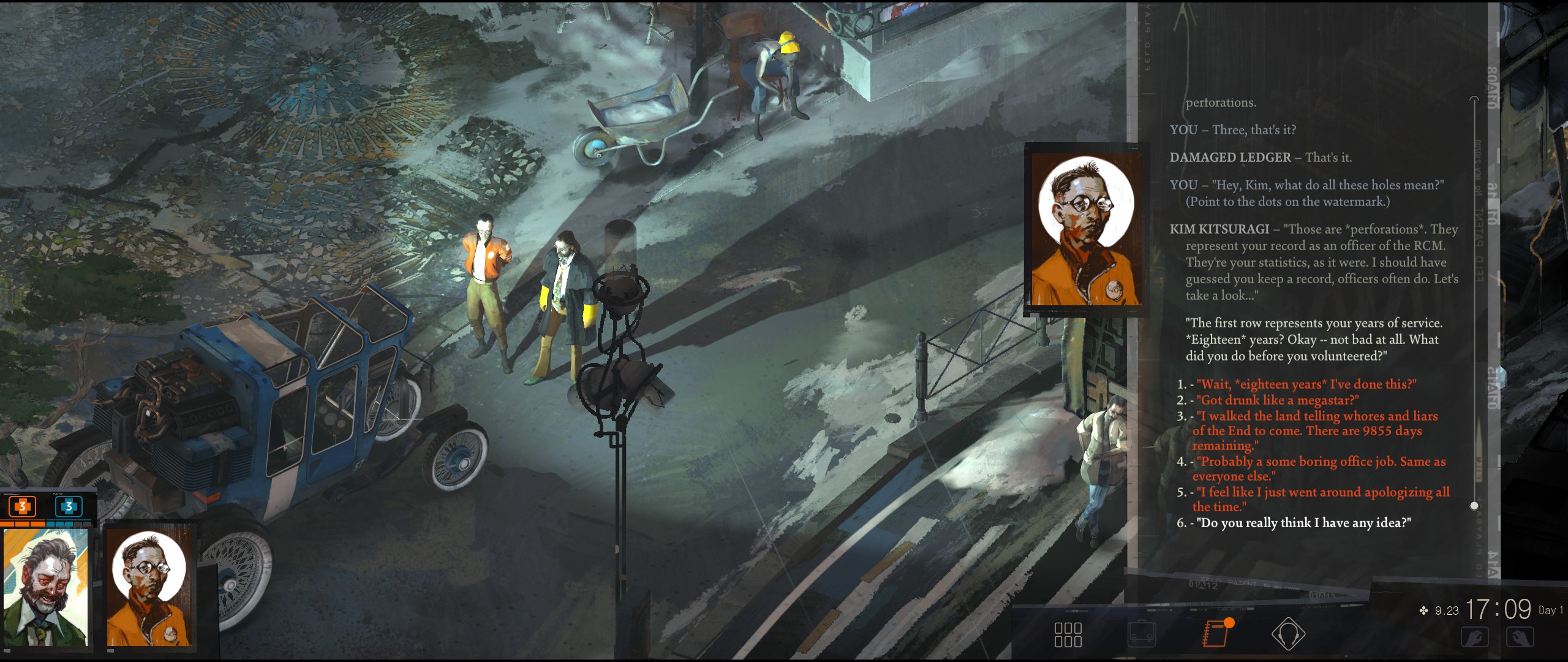
Where is he, and why is there a mess around, well, we understand pretty quickly. Revashol – a city that was once a beautiful capital, and then experienced a revolution – a failed one; now, fifty years later, it is divided into zones controlled by foreign companies and zones of occupation, and the places that were bombed half a century ago still have gaps in its stone masonry.
To the fishy smell coming from the docks, another specific aroma is added, possibly related to the presence of a corpse, which has been swaying thoughtfully on a tree branch in the courtyard of the local hotel for several days. He didn’t hang himself on his own, he was helped, there is a version that the help is related to the strike of the workers at the port… However, it’s for the detective to decide. Who has just woken up in the hotel on the second floor, struggled to take his tie off the fan, and is now looking for his second shoe. And at the same time, he realizes that he doesn’t remember anything at all.
However, when did that matter, if Disco is playing?
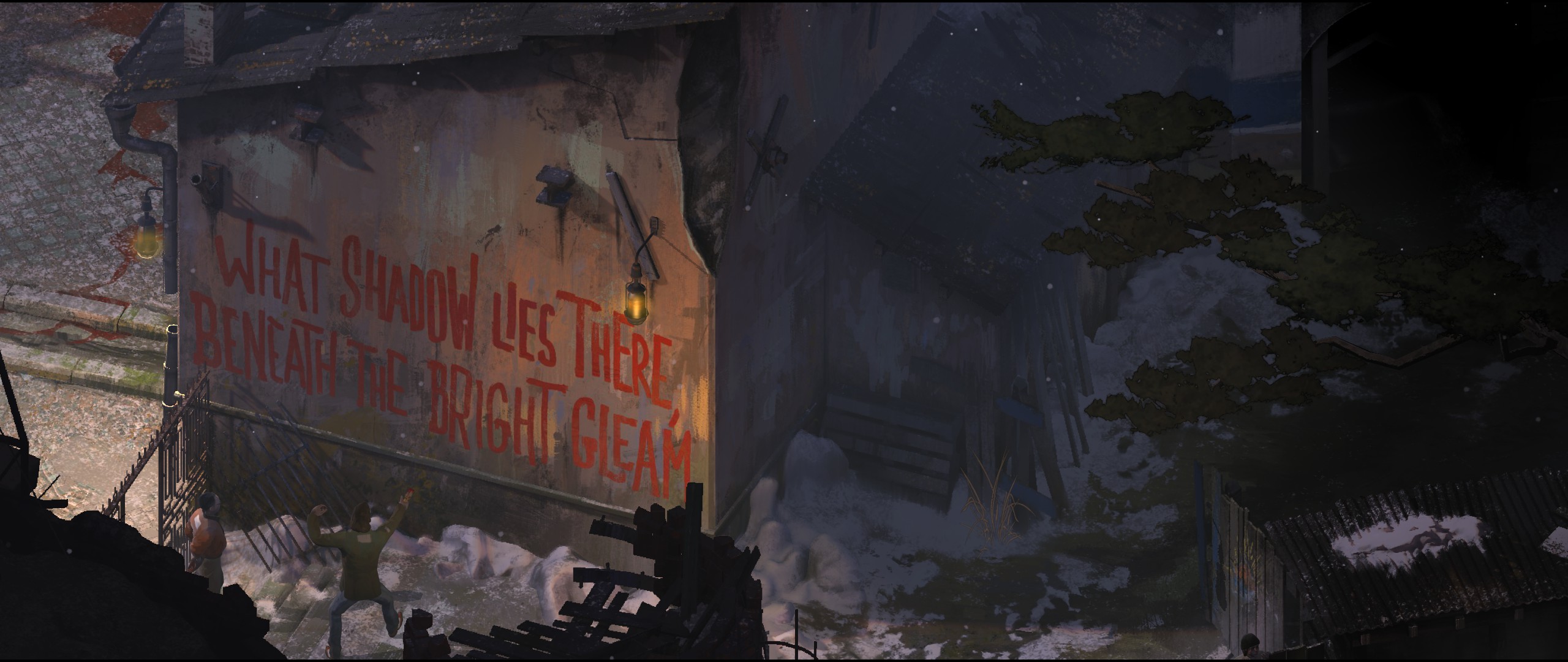
Disco Elysium is closest to tabletop RPGs if you have ever played, tried, or even peeked at them. Constant dice rolling (you can even see them on the screen!), i.e. constant skill checks – checks of abilities and characteristics. In dialogues, in replies, in actions – even in such random ones as “kick the trash can” or “scratch your nose”. It is absolutely not necessary to strive to successfully complete all of them without exception. Sometimes you can fail. Failing is funny and interesting, especially if you like black humor.
(The game is very kind to save maniacs like yourself: “I see a level one slug? SAVE!!!” But here it is really necessary. Save yourself. Save yourself periodically and in different slots. It will come in handy.)
Of course, detectives need partners – that’s another law that cannot be broken. Holmes had Watson, Poirot had Hastings. Our hero is lucky: in the hotel lobby, he is awaited by Lieutenant Kim Kitsuragi, a temporary partner from another police station. Poor Kim didn’t sign up to explain the basics of the universe, history, and criminology to amnesiac drunks, but what can you do?
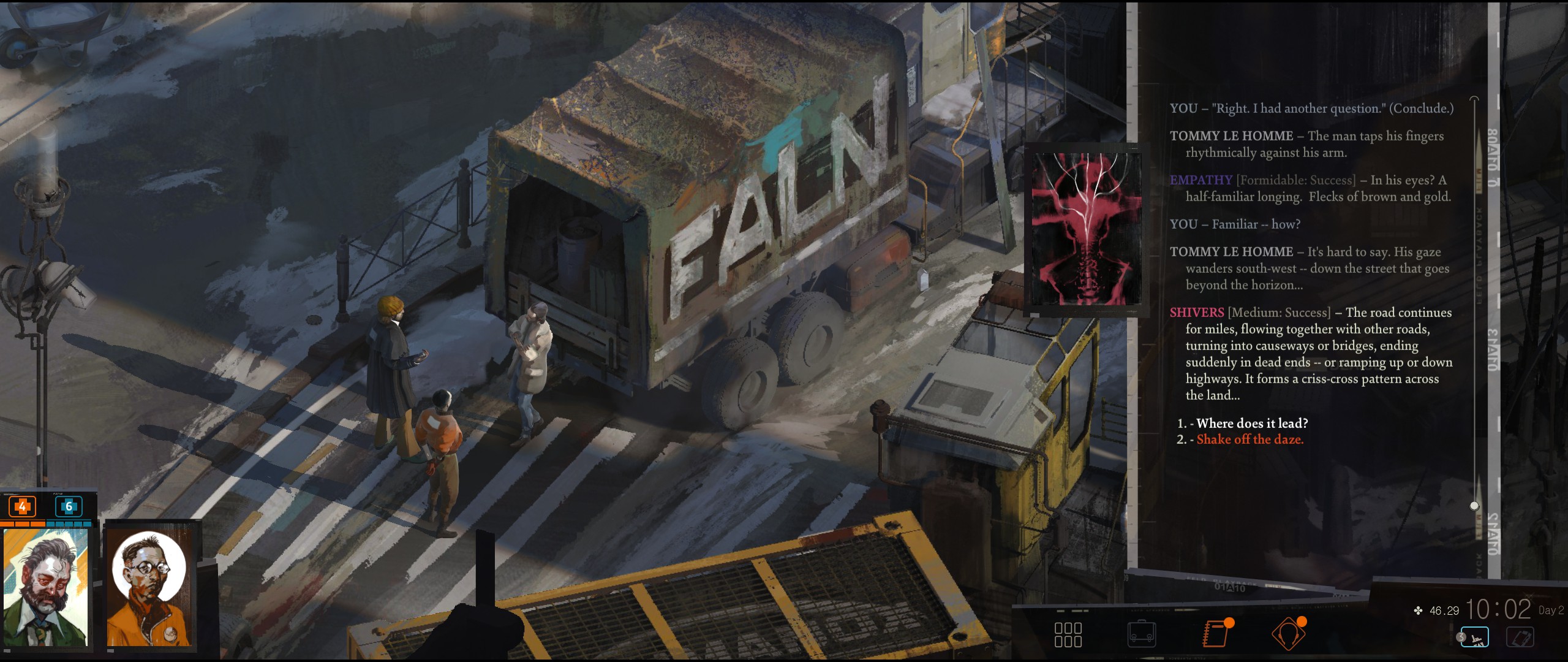
But there are other helpers who never abandon the hero, even in the dreary pit of self-doubt and disappointment. They can be called “voices in the head” or “overactive imagination”. They can be agreed upon as “skills” according to game mechanics. Yeah, skills, those very ones – but for once they have the ability to express their own opinions and pull the player along! And indeed, each of them will not miss the opportunity to share what they think, answer the hero’s unspoken question, mutter that this comrade is too suspicious, and even wear glasses… They are right, almost always right, but they can also make mistakes, they can be deceived.
And excessive obsession with any of these skills leads to quite, um, amusing consequences: level up Half Light – the survival instinct – to the maximum and you will be constantly on guard, but too much on guard, too jumpy, too nervous, ready to run, jump, scared of your own shadow on the cobblestone pavement. But it’s not worth completely ignoring Half Light, as the sad ending is not far away, Revachol can be quite dangerous, especially at night.
In addition to the voices in the head (and he also talks to his own tie! With a notebook! With a building wall! With a refrigerator! The Malkavians from VtM: Bloodlines would approve), our hero is also a thinker. Seriously. Every idea that comes to his mind, he must seriously (from one in-game hour) consider and then place it in a cell in his head. Gray cells, as Hercule said, they are the ones. These thoughts, while going through the “digestion” stage, slightly slow down the hero, giving a minus to his characteristics, but then, being conveniently located in a “cell”, they provide a certain bonus. This whole beauty is called the Thought Cabinet.
Beauty, indeed. In general, the illustrations of Disco Elysium (pictures in the same cabinet or on the skill screen) resemble the paintings of Francis Bacon in some places, engravings of Doré in others, blending surrealism with expressionism and adding originality and uniqueness to the game. The gameplay itself is not lagging behind: the characters are drawn in such a way that their character can be captured in a single pose, in a couple of movements (the animation, by the way, is also praiseworthy – even in isometric view!), and the main dynamics in their figures are provided by shadows and half-shadows. The background, on the other hand, is not so voluminous, somewhere shown in detail and very effectively, somewhere blurred and smudged, and the brushstrokes don’t even pretend to be shadows on the snow or reflections on the water… or are those shadows on the snow similar to brushstrokes? It all looks very stylish and impressive. And what about the loading screens, stylized as paintings!
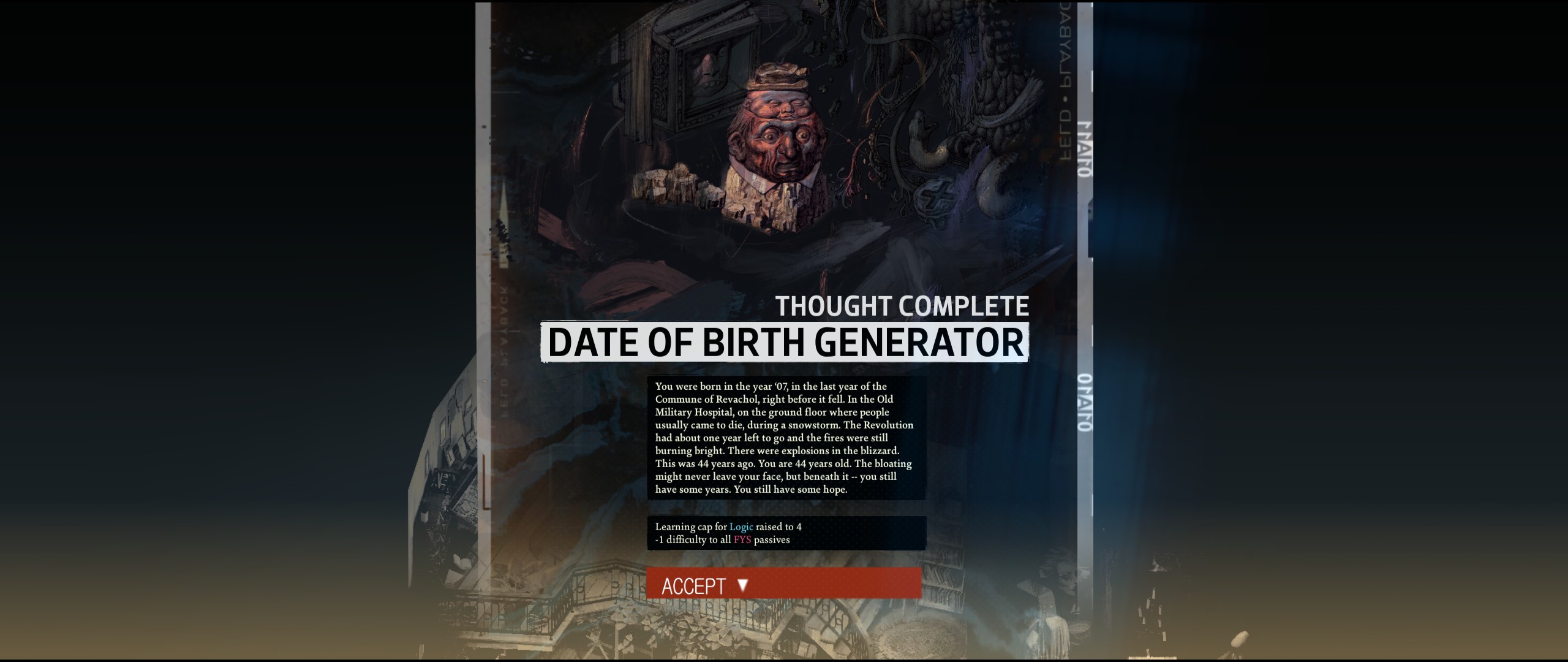
Kim Kitsuragi is the perfect partner, one of the best I’ve encountered in video games. If at first, immersing yourself in the role of our gloomy and unshaven hero, you might be outraged “why do I need this skinny four-eyed face?”, then after an hour or two, you’ll be ready to apologize, tormented by guilt and a hangover.
Kim, of course, provides the necessary exposition in stories of the genre “I don’t remember anything, I don’t understand anything, who are all these people and where are my things?” – but not only that. He is the balance that keeps the hero from falling into the abyss, where this mess of a person constantly wants to plunge headlong; he is a skeptic with the necessary dose of cynicism, always ready to bring the hero back to reality if he talks to his own tie for too long and sniffs a cup found in a trash container; he knows the rules that we, as police officers, must obey – and the hero, which is obvious, even in his best non-amnesiac years, did not suffer from excessive lawfulness. And yet – no, Kim is not a bore at all. Approximately on the second day of the game, many (including the author) find themselves thinking, “I might have done something bad, but Kim would be upset… why would I do it?” Holy Virgin Dolores Day, I didn’t care so much about the opinion of romanceable partners in all those dragonages as I cared about the opinion of Lieutenant Kim Kitsuragi!
In the end of the game (no, no spoilers! Especially since there are many endings), both can understand something for themselves. Kim shows the hero the way out of the swampy, hopeless darkness of years-long depression – back, maybe not to bright joy, but at least to some hope, to some, albeit dim at first, light, to hope for the better. And the hero gives Kim a chance to glimpse something beyond logic and book explanations: not everything in the world is subject to laws invented by humans, and sometimes it’s worth giving intuition and imagination a chance.
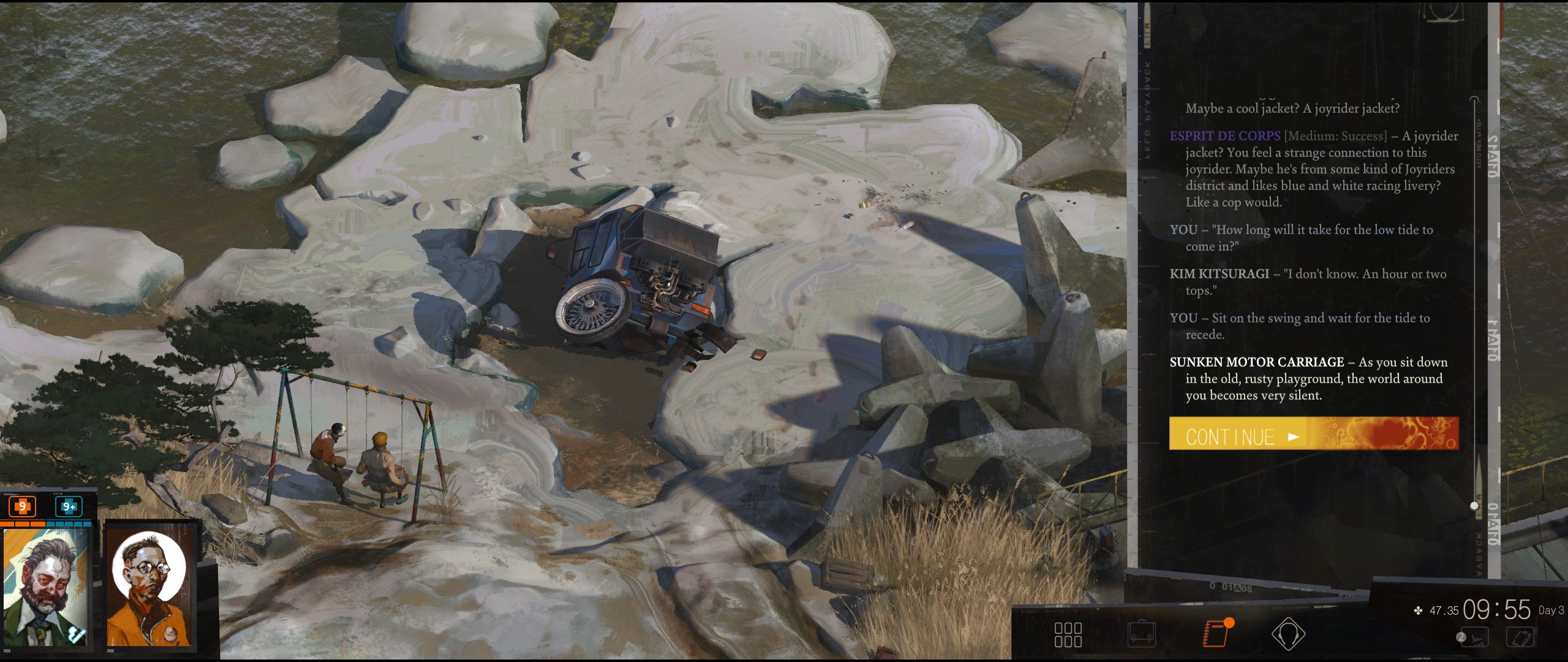
The search for oneself is far from a new theme in any form of art, including video games. The search for a criminal in a confined space (in this case, a small urban district and suburb at our disposal) is also a well-known classic. But here they run parallel, then intricately intertwine, making it impossible for one plot to exist without the other, one story without the other. That is why the murder would not have been solved by anyone other than a funny detective with silly sideburns and a colorful outdated tie. One could say it was fate.
The other participants in the story cannot be simply referred to as faceless NPCs – they are only half a step behind Lieutenant Kitsuragi. They are not just standing in a certain place to give you a specific quest, no. They live, and not because they have a schedule that says “go to the tavern and have a beer at 12:00, go home and lock the door at 18:00”. Each of them reacts differently to what is happening, each requires a special approach – it won’t be enough to rely on a universal diplomacy skill. And they also speak differently: accents, pronunciation. The speech of a businesswoman who arrived here on a yacht is completely different from that of a cheerful dockworker, and the daughter of the bookstore owner, of course, will never express herself the same way as a street urchin of her age.
“Role-playing” – often we forget what it means and why RPG stands for role-playing game, not a handheld anti-tank grenade launcher +10 to attack, +3 against orcs, +20 to attack against orcs. Disco Elysium reminds us of this in a subtle and unconventional way. The hero here is not a blank slate saying “I just turned eighteen, I left the village for the first time in my life”, he is a blank slate… with a past that, nevertheless, does not let him go. It is up to us to decide what to do with this past: try to forget it? Leave it as an eternal nagging scar? Dive back into the depths of a comforting bottle of alcohol, and polish it with something stronger and more forbidden on top? It is up to us to decide what to do with the present and the possible future. Will our detective become a boring and dull cop? A cop who kicks down any door and proclaims “I am the law!” A harbinger of the apocalypse, gloomily prophesying an inevitable ending? A liberal? A fascist? A communist?
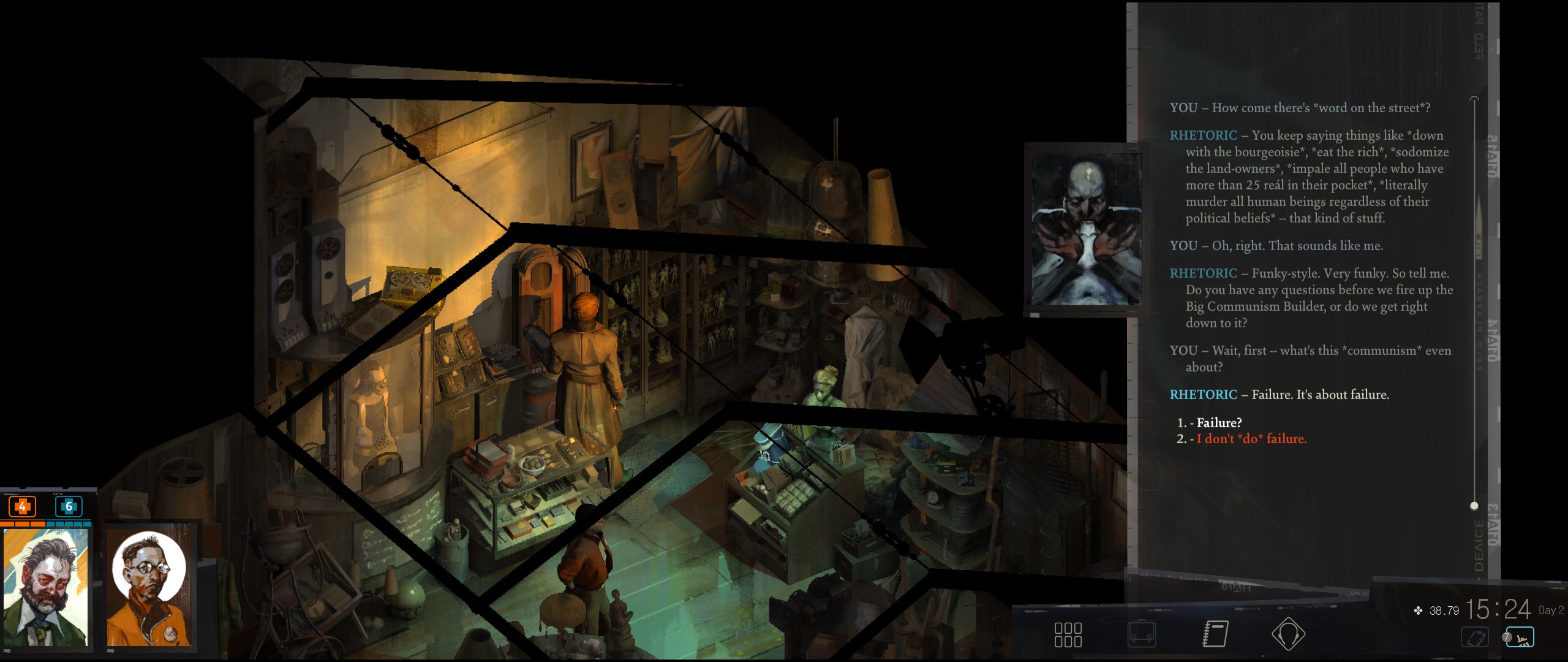
Yes, there is politics and related social issues here, but they, like the whole game in general, are darkly ironic and sometimes black-humored. For example, there is a comrade from the islands, firmly convinced of the superiority of his race over other worthless weak people, and that his islands are paradise. However, he has never been to the islands. But he has heard about them. On the radio.
Curious fact: in Western RPGs, our own heroes are often masks for ourselves, self-inserts, so to speak, they do not have a distinct personality, unlike fellow party members, friends, and colorful enemies. In Japanese RPGs, it can be different, but there the character of the protagonist is created for us by the scriptwriters. Here, however, we ourselves mold our detective, shaping his personality… and this personality (a walking catastrophe, to be honest) will surely stay in the memory of all the residents of the port district for a long time. My hero managed to burst into tears, faint, and almost have a heart attack, discovering an old letter between the pages of a work folder. Then he became obsessed with the idea of making a cockatoo his heraldic bird (and he actually did). Then he got into cryptozoology. In the process, he tried to beg for money (and cigarettes) from every first passerby, caught ghosts in the attic, got carried away with apocalyptic visions and communism, and got involved with a local small-time drug dealer…
You can create – and most likely will create – a completely different detective. And that will be right. Role-playing is what it’s for.
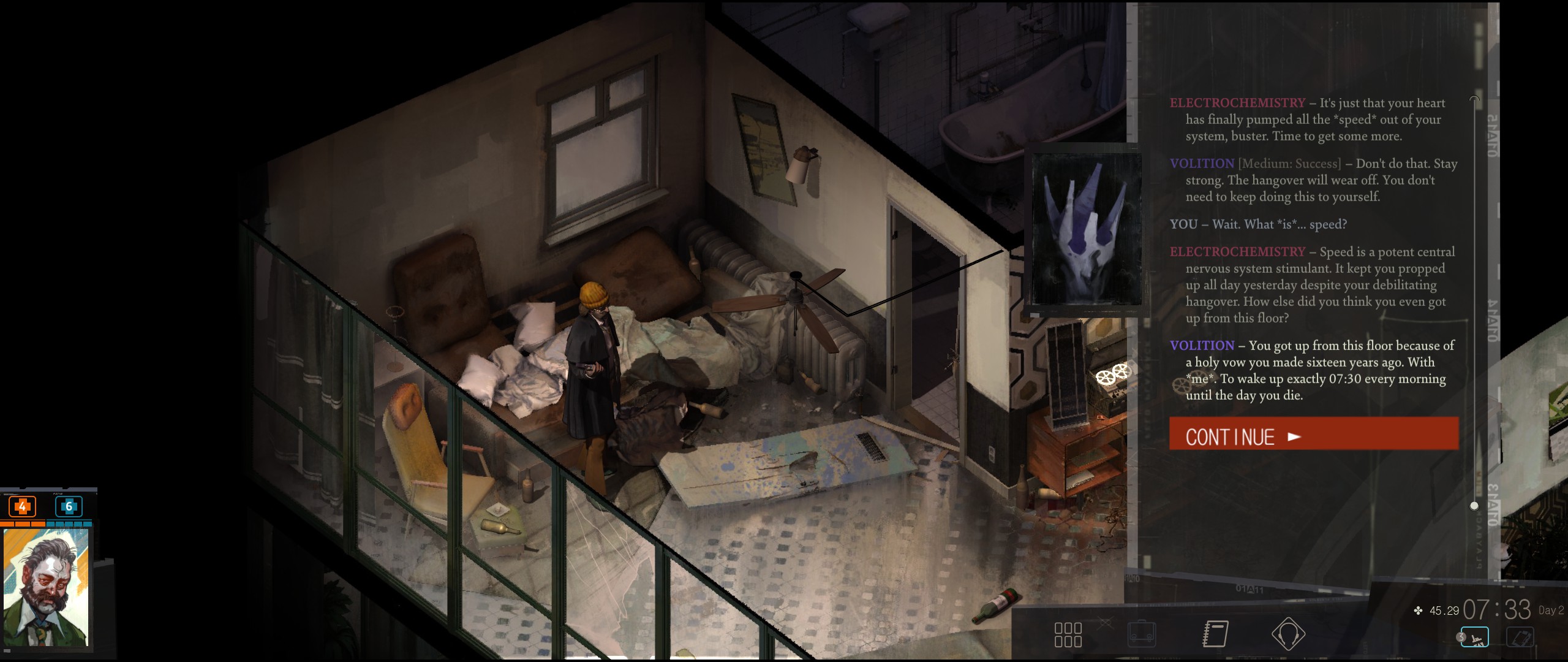
I won’t claim that Disco Elysium is a game for everyone – some people might not like it. It’s slow, the so-called “action” is completely absent, replaced by “narrative”, observation, and the calm recitation of the narrator. There is a lot of text in it, no, not like that: there is A LOT of text, and if you’re not in the mood to read paragraph after paragraph, then it won’t be to your liking. And finally, some understanding of English is required, the better, the… um, better. There is no translation yet, when it will be available is unknown.
But if you decide to give it a try, beauty, mysteries, a crazy world, and music are all at your service.
The only problem is: after Disco Elysium, it’s very difficult to play other RPGs. You search for that irony in the texts and descriptions, that strange nostalgia, that salty sea breeze, those little enchanting moments. It happens: you read a very good book, then you wander around like a ghost in rooms, searching for something that doesn’t exist. Maybe it will pass.
Share
Discuss
More Reviews
